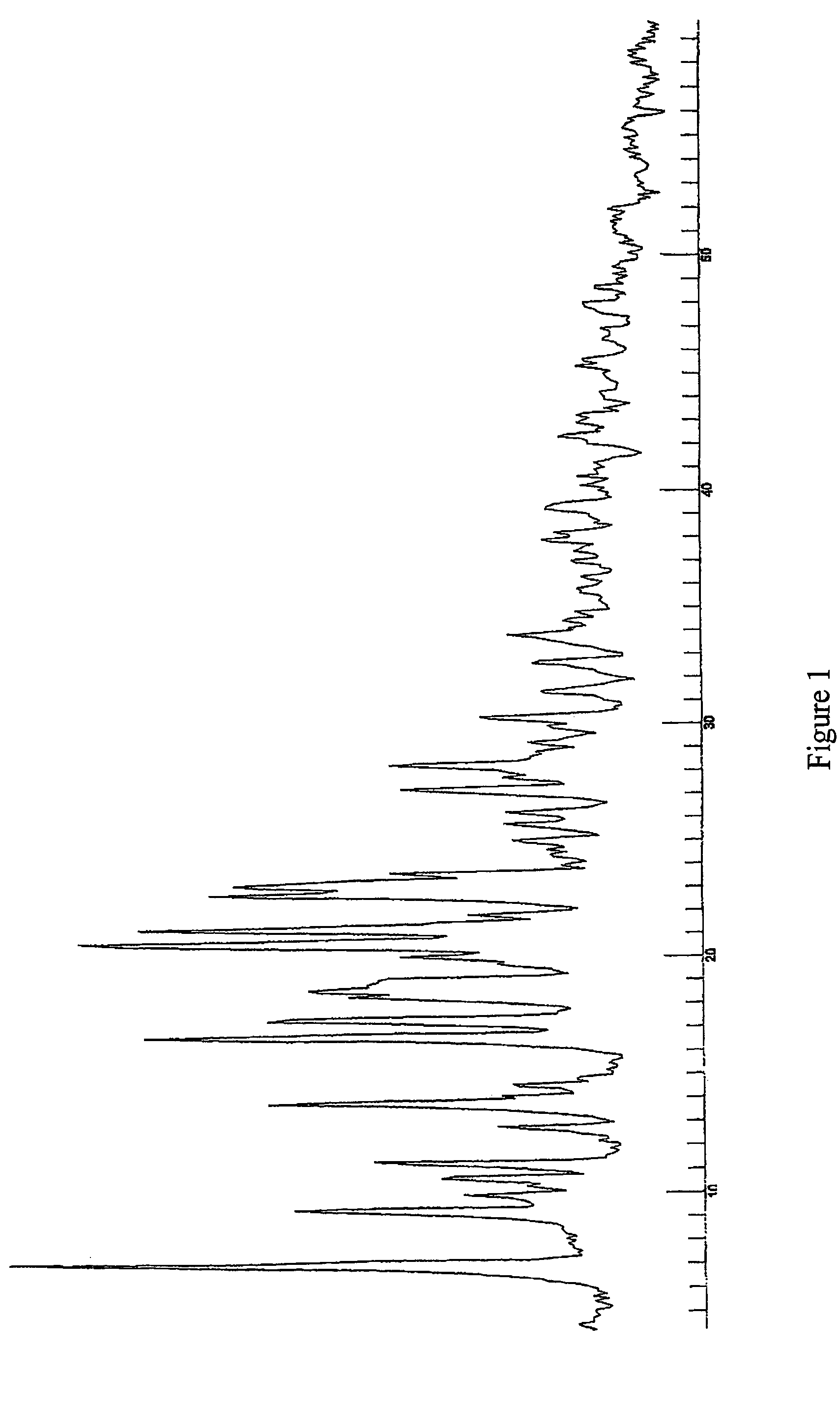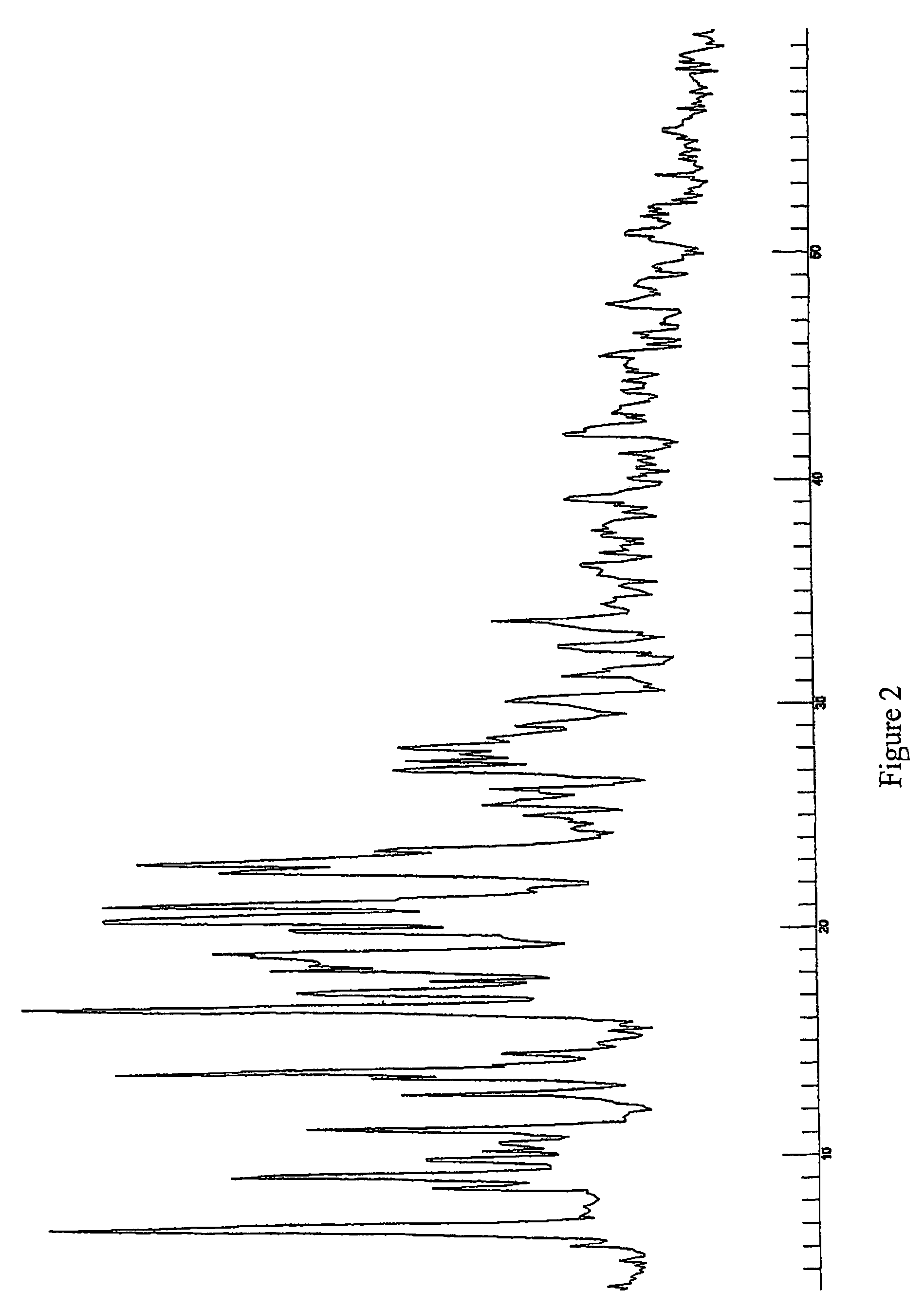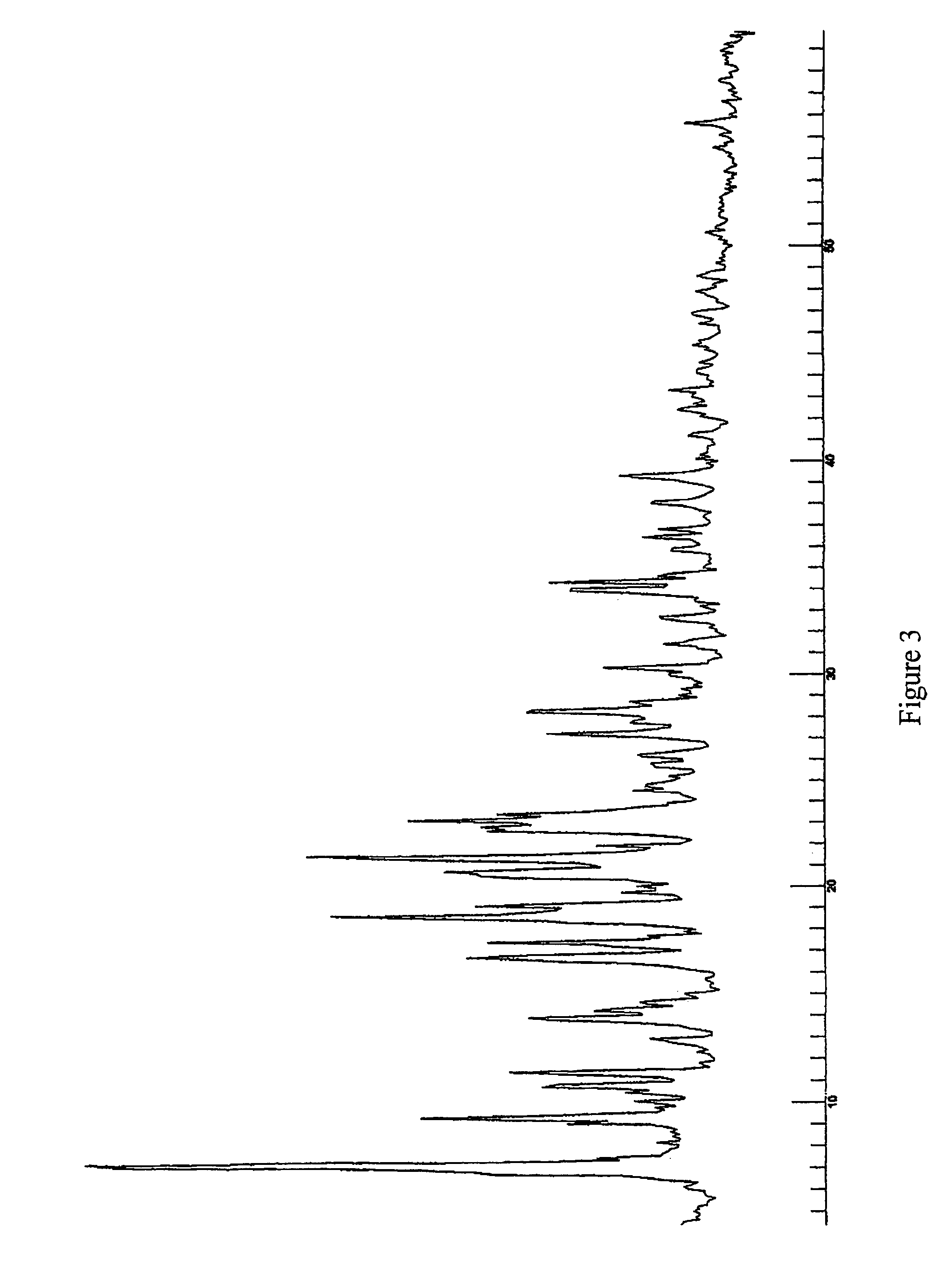Pseudopolymorphic forms of a HIV protease inhibitor
a protease inhibitor and polymorphic technology, applied in the field of polymorphic forms of hiv protease inhibitors, can solve the problems of complex technical discipline of pharmaceutical formulations, physico-chemical factors and the pharmaco-technical formulation can have repercussions in bioavailability, and achieve the effect of improving stability and bioavailability
- Summary
- Abstract
- Description
- Claims
- Application Information
AI Technical Summary
Benefits of technology
Problems solved by technology
Method used
Image
Examples
example 1
[0124]The industrial scale synthesis of Form A (1:1) was performed using the following steps. First a solution was prepared with isopropanol and (3R,3aS,6aR)-hexahydrofuro[2,3-b]furan-3-yl(1S,2R)-3-[[(4-aminophenyl)sulfonyl](isobutyl)amino]-1-benzyl-2-hydroxypropylcarbamate. The solution was concentrated by vacuum distillation at 70° C. and 200-500 mbar pressure and cooled from a T>35° to a T between 15°and 20° C. for about 10 hours. The crystals formed were newly washed with 13 liters isopropanol and filtered. A subsequent recrystallization from ethanol / water (90 liters / 90 liters) was performed. This was followed by a new dissolution step, but with 60 liters ethanol instead. Recrystallization of the reaction mixture from ethanol occurred, followed by a cooling step from reflux to −15° C. approximately and during 10 hours. The ethanolate formed was filtered and let to dry at about 50° C. and about 7 mbar. The yield of this process was at least 75%.
example 2
[0125]In another example a mixture of Form D and Form B were prepared. Acetone was used as a solvent during the crystallisation process to form Form D. The crystallisation process then comprised the step of stirring the initial starting compound (10 g) in 70 ml acetone. The solution was subsequently refluxed until the compound was completely solved. 40 ml of water were added and the solution was subsequently cooled slowly until room temperature and stirred overnight. Formed crystals were filtered and dried in the vacuum oven at 50° C. 7.6 g of product resulted from the crystallization, being the yield of this process of about 75%.
example 3
[0126]In another example Form J crystals were prepared. Isopropanol was used as a solvent during the crystallisation process to form Form J. The crystallisation process then comprised the step of solving the initial starting material in the hot solvent. The solution was subsequently cooled until room temperature. Formed crystals were filtered and dried in the vacuum oven at 50° C. The crystals contained about 50 mol % isopropanol.
PUM
| Property | Measurement | Unit |
|---|---|---|
| TG | aaaaa | aaaaa |
| two-theta angle | aaaaa | aaaaa |
| two-theta angle | aaaaa | aaaaa |
Abstract
Description
Claims
Application Information
 Login to View More
Login to View More - R&D Engineer
- R&D Manager
- IP Professional
- Industry Leading Data Capabilities
- Powerful AI technology
- Patent DNA Extraction
Browse by: Latest US Patents, China's latest patents, Technical Efficacy Thesaurus, Application Domain, Technology Topic, Popular Technical Reports.
© 2024 PatSnap. All rights reserved.Legal|Privacy policy|Modern Slavery Act Transparency Statement|Sitemap|About US| Contact US: help@patsnap.com










